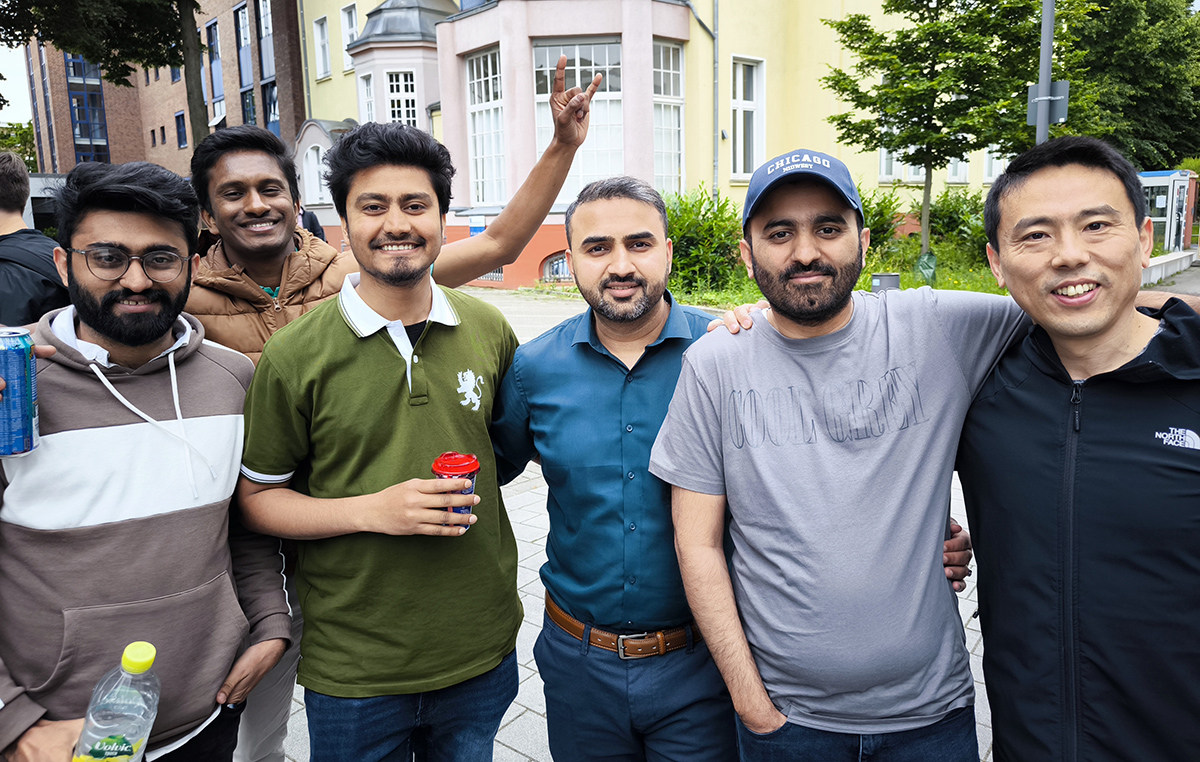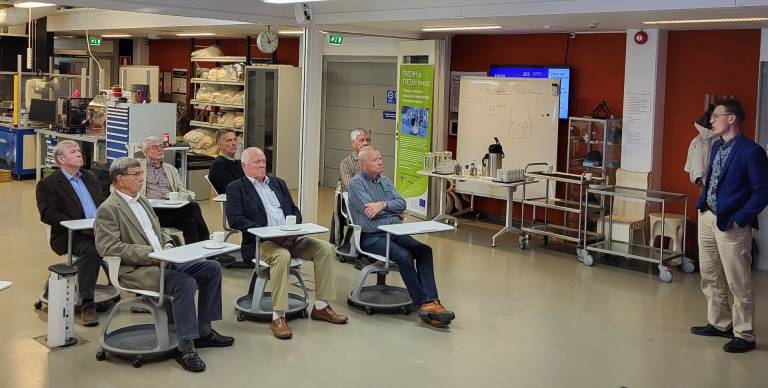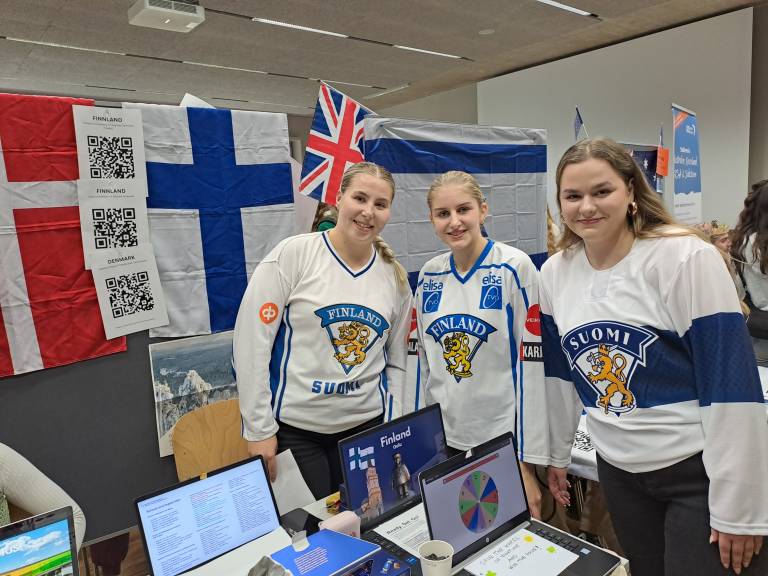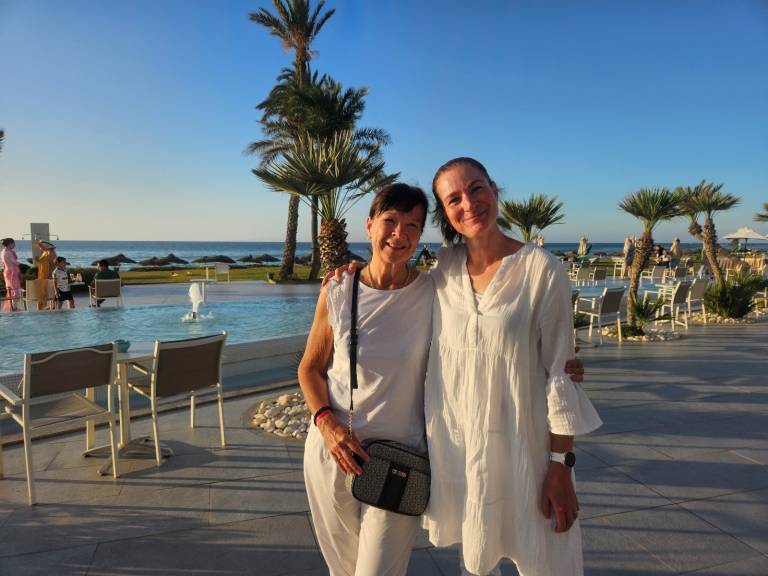Besides TAMK, the participants represented Bern University of Applied Sciences in Switzerland, Masaryk University Brno in the Czech Republic, Western University “Vasile Goldiş” of Arad in Romania, and of course this years’ host, Niederrhein University of Applied Sciences in Germany. All together than 40 students and 6 lecturers participated in the course.
A Synthesis of Virtual and In-Person Learning
Starting in March 2024, the course integrated several online sessions, laying a strong foundation in AI and its business applications. These virtual sessions facilitated initial interactions among students from diverse cultural backgrounds, promoting early collaborative efforts on AI-related projects.
The Mönchengladbach on-campus session offered a unique opportunity for face-to-face engagement, enriching the earlier collaborative online efforts.
International Collaborative Study Projects
Throughout the course, students worked in international groups on several study projects related to AI in business. These projects were a central component of the learning experience, requiring students to apply theoretical knowledge to practical scenarios.
During the stay at Hochschule Niederrhein, students reported their findings and presented their work. This presentation phase allowed for critical feedback and discussion, further deepening the students’ understanding of the subject.
Academic and Practical Enrichment
The on-campus part featured a series of lectures and workshops delivered by experts in the field of AI, providing an in-depth exploration of both theoretical frameworks and practical applications.
The students from the TAMK were accompanied by Sven Rassl, Senior Lecturer at TAMK and the head of the masters degree progamme in international business management .
Prof. Dr. Martin Wenke and Prof. Dr. Harald Vergossen, faculty members from Niederrhein University of Applied Sciences, hosted this year’s course. They not only ensured a vibrant and rigorous academic atmosphere but also arranged a variety of enriching activities throughout the duration of the course.
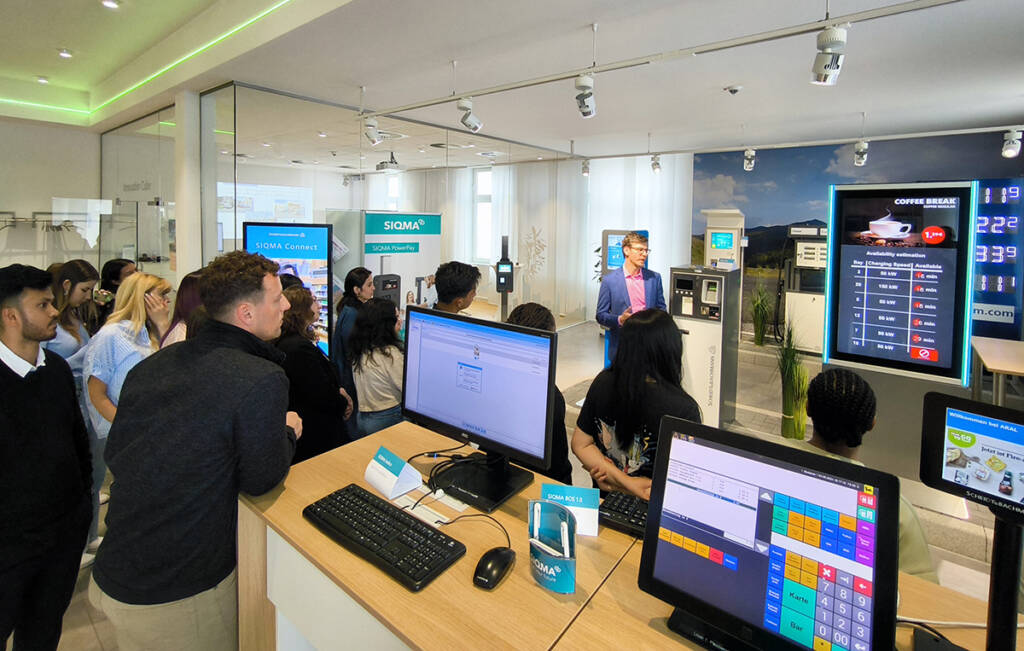
A highlight of the trip was the visit to Scheidt und Bachmann, a company specializing in developing intelligent systems for mobility and infrastructure, including ticketing systems, fuel retail solutions, and parking management. The visit allowed students to observe the practical deployment of AI technologies, offering a real context to the theoretical knowledge gained during lectures. The experience pointed out the transformative potential of AI in optimizing business processes and enhancing operational efficiencies.
“Participating in the international collaborative blended course was a great learning experience for me. It provided me with valuable insights into the practical applications and ethical implications of Artificial Intelligence.” – Student
Long-Term International Cooperation
The study trip also emphasized the long-term cooperation between TAMK and Hochschule Niederrhein. This long-lasting partnership has facilitated numerous collaborative educational initiatives, enhancing the academic experiences of students from both institutions through shared resources and expertise.
Socialising and Cultural Exploration
Beyond academic activities, the trip included several socializing events aimed to explore local German culture and foster networking among participants. Common dinners and a barbecue provided opportunities for students and staff to interact in a relaxed environment, creating lasting connections and a deeper appreciation of the local culture.
Support from the Ruuskanen Foundation
The realization of this study excursion was made possible through the generous funding provided by the Ruuskanen Foundation.
The study trip to Niederrhein University of Applied Sciences represented an academic effort, blending virtual and in-person learning experiences to provide a comprehensive understanding of Artificial Intelligence in business. The interactions during the trip, both in academic settings and through company visits, created a sense of collaboration and mutual respect among students from different countries and academic disciplines.
The excursion not only enhanced knowledge of AI and its business applications but also enabled valuable experiences of international cooperation. The insights gained and connections made during this trip are made an impact on participants academic and professional routes. The 23YIBM study trip to Niederrhein University of Applied Sciences characterizes the integration of international collaboration and advanced academic learning.
Text and pictures:
Sven Rassl
Senior Lecturer | Business and Media
Tampere University of Applied Sciences


